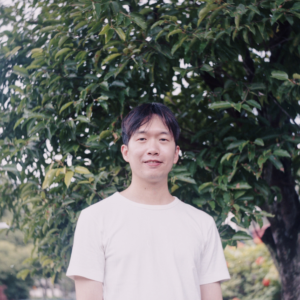
Are you looking for bold writing advice that stretches beyond encouragement to sit at a desk and build a daily writing routine?
Writer and arts organiser Daryl Qilin Yam provides his insights into ways to get writing. Rather than producing a one-size-fits-all guide, Daryl shares compelling anecdotes and ways of thinking, inviting us to adopt different practices that might make us see things differently in the everyday. Whether it’s considering his own mortality, or reflecting on a chance meeting of an old love in a café, Daryl encourages us to forge our own writing path.
Daryl produced this commission during a 2022 virtual residency with NCW, supported by National Arts Council of Singapore. Read on to discover his writing tips.
Looking at writing differently
I’m not super comfortable telling anyone how to write — everyone has their own process, and will ultimately find their own tortured way about it in time. Thus, these tips aren’t really tips per se, but ways in which I’ve managed to go around doing that thing I call writing.
Realise that you will die one day.
Let me explain. I often get asked how I got my start in writing, and depending on the mood I’m in, I might provide any number of reasons: that I loved reading; that my English teacher identified a particular facility I had for the craft; that I was in constant search for a book that I knew only I could write; that I was bullied in school, and needed some kind of emotional outlet — et cetera, et cetera. But the real push (and, some might say, the real reason) to write (seriously, professionally, artistically) came when I was in the army, twenty years old, an office clerk crossing one end of the office to another to bind a stack of documents together. I was the only person in the office that afternoon, which made the room quiet enough for me to hear my own voice in my head say: ‘You are going to die one day.’ And in that instant I realised that because my life was finite, my time, my energy, my heart, my words — those would come to be finite, too. I wasn’t really in a position to waste them or expend them unthinkingly. I’d have to be precious with all of these things.
Go for a jog. Or run a bath. Or wash your face.
If you can do all three things in that order — even better.
(‘The Body is the Garden of the Soul,’ the Angel says to Hannah, moments before giving her the best fucking kiss of her life.)
Keep all of the books you love near you, at all times.
I say this because whenever I get stuck on a sentence, I need the fortitude and wherewithal to stop, take a breath, and unpick whatever needs unpicking as efficiently as possible — quite like having a cardigan caught on a branch, a twig, a Velcro strap.
But it’s also possible to run into deeper troubles, or to fall in an overly self-critical mood. I fix this by reopening a book I love and remembering its particular delights. By doing so, I’m also relearning its specific lessons, retaking the lessons only that book can give me, which is to say its seemingly countless ways of organising thought, feeling and desire on the page. Sometimes however it’s not simply enough to appreciate the music; one also has to observe the conductor of the orchestra, and the peerless way they’ve managed to keep track of time, and of sound.
Allow me now to recite some of the spines I can see sitting on the shelf above my writing desk: Frank O’Hara, Lunch Poems; Jack Spicer, my vocabulary did this to me; Haruki Murakami, Blind Willow, Sleeping Woman; Willa Cather, Death Comes for the Archbishop; Patti Smith, M Train; Robert Creeley, Poems 1950-1965; the Joan Didion omnibus, We Tell Ourselves Stories in Order to Live; Cyril Wong, Infinity Diary.
Sometimes it’s not simply enough to appreciate the music; one also has to observe the conductor
Keep all of the people you love at a comfortable distance — if only to observe them a little better.
Allow me to recount an incident I had nearly a full year ago, an incident I must admit altered the trajectory of my life. I was coming out of the toilet of a café, shuttling myself down this impossibly narrow gap made between a wall and a row of chairs in order to re-join my friend, a friend who’d earlier told me to check the toilet out — it was impossibly small, she said.
Anyway. I did that, and found that it was just like what she said. I rushed out of the toilet, eager to affirm my friend’s astute observation, only to bump into a man I’d fallen in love with a few years ago, a man I didn’t even see standing there before me till he said hello, followed by my name (or was it my name? followed by a hello?), an utterance that basically forced me to look up and see who it was. But because the space between him and I was so tight — partly because he was so much taller than me, and in possession of an even wider torso — it was literally impossible for me to take in the fullness of him, this man who I’d dreamt of reencountering multiple times over the past few years, in all sorts of fairly plausible but ultimately fantastical, embarrassingly nostalgic ways. And yet, there in that café — all I could see was the top half of his face, really, infuriatingly hidden away behind his mask. Even his shoulders, so broad, basically thinned out and disappeared along the edges of my peripheral vision.
Weeks later, when I finally met him again in a dreadful, fitful dream, he appeared like how he had appeared before me that day: a floating head that haunted the edges of my vision, just a face and nothing more, when of course what I’d also wanted was the rest of him, was all of him. I wished that rather than bump into him, I’d been offered the privilege to see him from afar, only so I can hide, and spy on him, just to see what he was like, what he was truly like, without me.
Realise that everyone — everyone you love, and not love, and know, and not know — will also die one day.
What do you think they’d do if they knew?


Daryl Qilin Yam (b. 1991) is a writer and arts organiser from Singapore. He is most recently the author of the novella Shantih Shanith Shantih (2021), shortlisted for the 2022 Singapore Literature Prize, and the novel Lovelier, Lonelier (2021), a finalist of the 2021 Epigram Books Fiction Prize. He is a co-founder of the literary non-profit Sing Lit Station.
During his residency, Daryl worked on Be Your Own Bae, a collection of interconnected short stories concerned with the lives of queer Singaporean men and the friends, family members and mentor figures that they love and look up to. Situated across Singapore, South Korea, New York City and multiple cities in Japan, the collection further threads together multiple genres and styles of writing such as speculative fiction, ekphrasis and creative autobiography.
In 2022, the National Centre for Writing offered three virtual residencies for writers from Singapore, generously supported by the National Arts Council of Singapore. The writers were Akshita Nanda, Crispin Rodrigues and Daryl Qilin Yam. Over the six months, the Singaporean writers worked on a project with a UK-based writer as mentor. They also met online with writers and translators connected with Norwich, took part in an interview for The Writing Life podcast and participated in Meet the World events. At the end of the residency, we commissioned a piece from each writer reflecting on their residency and their writing. They also contributed writing tips, like the above, and a blog for Walking Norwich. Read more here →
You may also like...
17 tips for writing creative non-fiction
Writers and editors give their advice on writing non-fiction and tackling its challenges.

30th July 2022
Editing your novel: How to revise, rewrite and redraft your book
Writer and tutor Lynne Bryan explains the stages of revising a novel, from words to chapters and beyond.

30th July 2022
‘To succeed, you must write a book for others, not yourself’
Robert Ashton shares the process behind writing and funding his new book, ‘Where are the Fellows who Cut the Hay?’

7th June 2022






